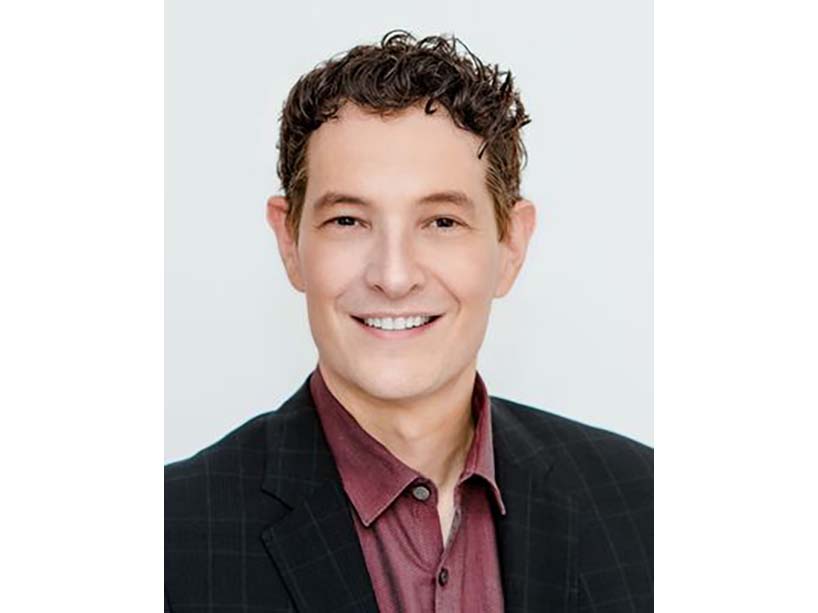Healthy sexuality for students: Healthy sex, healthy body, healthy mind

Sexuality is a natural and healthy aspect of the human experience, enhanced by sex education and safer sex practices. Photo by Elizabeth Tsung on Unsplash
Updated August 25, 2023.
For many young adults, university is a time of growing sexual self-awareness, exploration and experimentation. A sex positive approach appreciates consensual sexual activities as fundamentally healthy and pleasurable, but also emphasizes the importance of safe sex education and practice.
As university students head back to classes, we asked an expert for tips on a healthy sex life. Trevor A. Hart is a professor in the Department of Psychology, director of the HIV Prevention Lab (external link) and head of the steering committee for TMU’s new HOPE Centre for Gender and Sexual Minority People (external link) Here, he explains how you can safeguard your health and wellness while maximizing your enjoyment.
”A healthy approach to sex doesn’t only mean protecting yourself against HIV or other sexually transmitted infections,” says Hart. “It also means having sex that is consensual, that matches your personal values, and that is pleasurable.”

Professor Trevor Hart, in the Department of Psychology wants students to know that sexuality and physical and mental wellness go hand in hand.
Sexual health defined
Sexual health is a vital and integral part of overall health and well-being and includes the emotional, physical and social aspects of sexuality. According to the World Health Organization (WHO), sexual health involves respect, safety and freedom from discrimination and violence.
Young people are in a time of their lives when they are exploring who they are, who they are attracted to and what type of relationships they are looking to establish. Sex is an important aspect of self-discovery, and should always be consensual and enjoyable. Regardless of your sexual orientation, you have a right to make choices about your sexual habits and preferences in ways that feel right for you.
Besides physical pleasure, sex also offers psychological and emotional benefits. Sex can be exciting and help people grow. Intimacy provides wonderful bonding opportunities and emotional connection.
Mental health, well-being and sex
Sometimes, our mental health can affect what we do sexually. Hart offers an example, saying that if we are feeling sad or lonely, we could seek sex to try to feel better. “Negative feelings can cause us to use alcohol or other drugs before having sex, which can sometimes lead to decisions we might regret later,” he says. “ On the other hand, if we choose to have sex in ways that match our values, such as enjoying pleasurable activities or intimacy, sex can enhance our mental health and well-being.”
Sexually Transmitted Infections
A sexually transmitted infection (STI) is passed from one person to another person through sexual contact, and can be the result of bacteria, a virus, or parasite. Some STIs can be cured while others can require life-long management. Since most STIs have no symptoms, it’s important to get tested often and prevent infections from causing serious health problems. Learn more about STI testing and appointments at Planned Parenthood Canada (external link) .
How to have safer sex
Safer sex is healthy and prioritizes the well-being of you and your partners. It may feel difficult or uncomfortable to bring sex up to a new partner, but the benefits far outweigh any initial embarrassment you might feel. Your partner should be open to talking about safe sex; it can also be a way to help gauge a healthy relationship. Talk to your partner beforehand to share preferences, history and safe sex options. Being proactive can prevent you from making heat-of-the-moment decisions that can have an enduring impact. Here, Hart offers some safer sex tips:
- Use protection during sexual intercourse including condoms, female condoms, lubricants
- Communication is key. Talk openly and honestly about sexual histories, STI status and decide the best options for practicing safer sex
- If you want to reduce your risks, consider whether you want to reduce the numbers of partners you sexually engage with or choose to be in a monogamous relationship
- Undergo regular STI testing and treat any STIs, abstaining from sex until treatment is complete
- Using pre-exposure prophylaxis (PrEP) medications as an HIV prevention tool if you plan to have sex without condoms. This prescription medicine is best for adults and adolescents at risk of HIV and helps lower the chance of getting HIV through sex
Sexual consent

Consent Comes First is TMU’s education and support centre for community members affected by sexual violence & gender-based violence. Photo: Gender Spectrum Collection
The Consent Comes First Office is a free, confidential, trauma-informed, healing-centred support centre for TMU community members affected by sexual violence and other forms of gender-based violence. They define sexual violence as any sexual act or acts targeting a person’s sexuality, gender identity or gender expression. The act can be physical or psychological in nature, as long as it is committed, threatened or attempted against a person without the person’s consent. Learn more in Toronto Metropolitan's Sexual Violence Policy.
Here are some important things to keep in mind when it comes to sexual consent:
- Make sure to communicate sexual limits with your partner before and during intimacy
- Always listen to and respect a partner’s boundaries
- Be sensitive to non-verbal cues that can also delineate boundaries
- Accept refusals of sex without hostility or feeling insulted
- Talk with a partner about sexual activity before it occurs to set limits but also align on contraceptive and condom use, and meaning of the relationship
Take advantage of Consent Comes First free programming through Curiosity Labs, a shame free experimental space to explore and build on relationship skills. The workshop series takes place virtually on Wednesdays from 4 p.m. to 5 p.m. and will explore flirting, boundaries, rejection, sexual communication, safer partying and conflict.
Sexual health goes beyond the intimate physical acts and integrates physical and socio-emotional health. Self-care means establishing boundaries and needs when it comes to sex and making sure your partner is on the same page. In this way, you can enjoy a healthy sex life and the benefits it can bring.
Related stories: